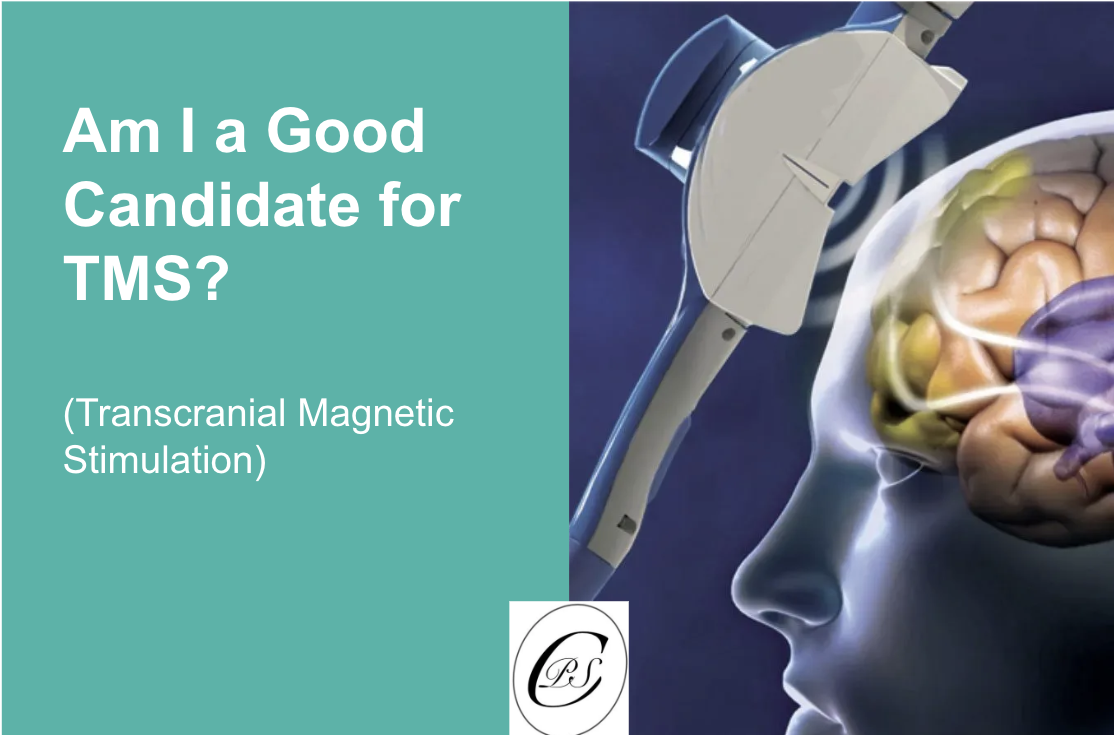Am I a Good Candidate for TMS?
Transcranial Magnetic Stimulation (TMS) has emerged as a promising treatment for people with depression who have not improved with traditional therapies. But how do you know if you are a good candidate for TMS? According to recent clinical evidence and psychiatric guidelines, the answer depends on your treatment history, symptom severity, and medical profile. Let’s explore what research shows and what to discuss with your mental health provider before considering TMS.
Key Criteria for TMS Candidacy
1. Treatment-Resistant Depression
The strongest indicator for TMS is a history of depression that has not improved after trying at least one antidepressant medication. In many cases, providers prefer that patients have attempted two or more medications before considering TMS. If you’ve tried antidepressants without success or cannot tolerate their side effects, TMS may be a suitable next step.
2. Moderate to Severe Symptoms
Candidates typically have moderate to severe depression, especially when symptoms interfere with daily life, work, or relationships. If your depression significantly limits your ability to function, TMS may help restore balance without the systemic side effects of medication.
3. Intolerance to Medications
Some patients are unable to take antidepressants because of side effects like weight gain, sexual dysfunction, or sleep disturbances. According to clinical guidelines, TMS may be considered when medication side effects make standard treatments impractical.
4. Special Populations
Research also explores TMS for other conditions such as anxiety, OCD, and certain types of chronic pain.
Who Should Not Receive TMS?
While TMS is safe and well-tolerated for most people, there are important contraindications. According to clinical safety guidelines, individuals with a history of seizures, certain types of brain injury, or metal implants in or near the head (with the exception of dental fillings) should not undergo TMS. People with implanted medical devices like pacemakers also require careful evaluation before treatment. A thorough screening by a trained psychiatrist is essential to rule out these risks.
What to Expect from a TMS Evaluation?
Before starting TMS, you’ll undergo a comprehensive assessment that includes:
A review of your treatment history to confirm adequate trials of antidepressants.
A symptom severity assessment, which may use standardized tools like the PHQ-9 or Hamilton Depression Rating Scale.
A medical screening to check for contraindications such as metal implants or seizure disorders.
This evaluation ensures that TMS is both safe and likely to be effective for your individual situation.
Next Steps: Discussing TMS With a Specialist
According to clinical studies, TMS can provide significant relief for adults with depression who have not responded to standard treatments. However, deciding whether TMS is right for you requires a personalized assessment from a mental health professional.
If you’re experiencing moderate to severe depression, struggling with medication side effects, or wondering whether you meet the criteria for TMS, our team at Psychiatric Specialty Center can help. We provide thorough evaluations to determine if TMS—or another treatment—fits your needs.
What Is TMS and Why IS it Used for Depression?
TMS is a non-invasive brain stimulation treatment that uses magnetic pulses to target specific areas of the brain involved in mood regulation. According to clinical data, it is primarily recommended for adults with major depressive disorder who have not responded to at least one antidepressant at an adequate dose and duration. This makes TMS one of the most important options for individuals with treatment-resistant depression—a condition where standard medications have not brought sufficient relief.
